Welcome to our guest accommodation! We're thrilled to have you stay with us and want to ensure you have a pleasant experience. To achieve this, we've established some key rules and guidelines that will help maintain a comfortable atmosphere for all our guests. Dive into our article to learn more about these important policies and make the most of your stay!
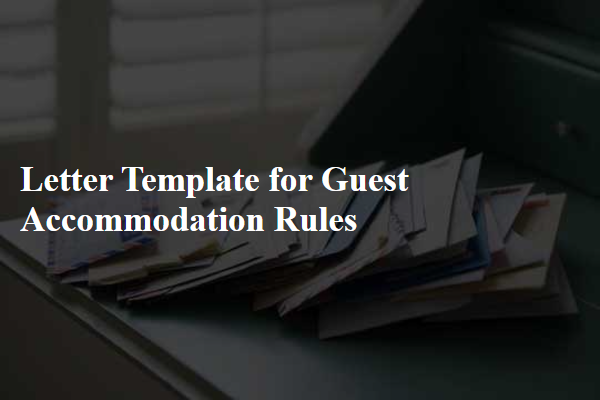
**Clear Check-in/Check-out Times**
Clear check-in and check-out times are essential for ensuring a smooth transition for guests staying at properties like hotels or vacation rentals. Standard check-in typically occurs between 3 PM and 5 PM, allowing staff to prepare the rooms after previous guests vacate. Check-out usually occurs by 11 AM, giving housekeeping sufficient time to clean and ready rooms for incoming guests. Adhering to these times helps maintain the quality of service. For special circumstances like late arrivals or extended stays, prior arrangements should be made to accommodate guest needs efficiently. Consistency in enforcing these timeframes enhances overall guest satisfaction while optimizing operational workflow.
**Housekeeping and Cleanliness Standards**
Housekeeping and cleanliness standards are essential in providing a comfortable and inviting atmosphere for guests staying at an accommodation facility, such as a hotel or vacation rental. Daily cleaning procedures include sanitizing high-touch surfaces like door handles and television remotes, ensuring restrooms are stocked with sanitary essentials like toilet paper and soap, and maintaining the cleanliness of communal areas such as lobbies and dining spaces. Regular inspections are conducted to uphold hygiene standards, with a focus on reducing the spread of germs, particularly in light of health considerations such as the global COVID-19 pandemic. Additionally, guests are encouraged to adhere to basic cleanliness protocols, such as disposing of trash in designated bins and reporting any maintenance issues promptly to avoid further complications. The goal is to create a seamless and pleasant experience for all visitors.
**Noise and Quiet Hours Policies**
Noise disturbance can significantly impact guest experiences in accommodation facilities. Establishing quiet hours, typically enforced from 10 PM to 8 AM, allows guests to enjoy restful sleep and relaxation. During these hours, activities such as loud music, running equipment, and social gatherings should be minimized to maintain a peaceful environment. Designated common areas may remain available for social interactions but should adhere to noise restrictions. Additionally, guests are encouraged to communicate any disturbances to management promptly, fostering a respectful atmosphere for everyone. Clear signage regarding noise policies throughout the property can further reinforce these expectations, ensuring all visitors understand and comply with the guidelines.
**Property and Amenities Usage Guidelines**
Guest accommodation rules provide essential guidelines for the proper use of property and amenities, ensuring a comfortable stay for all visitors. Upon check-in, guests receive a welcome packet detailing the policies, which include quiet hours from 10 PM to 8 AM to maintain a peaceful atmosphere. Usage limitations for communal spaces, like the pool and gym facilities, require adherence to maximum occupancy signs, typically capping at ten guests for the pool area to ensure safety. Guests must dispose of trash in designated bins and respect recycling protocols for environmental sustainability, critical in communal living settings. Emergency procedures are outlined, detailing evacuation routes and the location of fire extinguishers, which are vital for guest safety during their stay. Additionally, reminders to respect neighboring properties reinforce the importance of maintaining a positive community relationship during the visit.
**Emergency Contacts and Safety Procedures**
Emergency contacts and safety procedures are crucial in ensuring guest well-being during their stay at accommodations such as hotels or short-term rentals. In case of fire, the local fire department (typically 911 in the United States) should be contacted immediately for assistance. Physical escape routes, highlighting exits, and fire extinguishers (normally located in hallways) must be clearly marked in guest areas. Additionally, in case of medical emergencies, guests should know to dial local emergency services, including hospitals like St. Mary's Medical Center, which is located nearby for urgent care. The accommodation should also have a designated safety officer accessible at all times, who can provide guidance on evacuation protocols during an emergency event. Regular safety drills and emergency procedure briefings should be conducted to ensure guests are informed and equipped to handle unexpected situations proficiently.

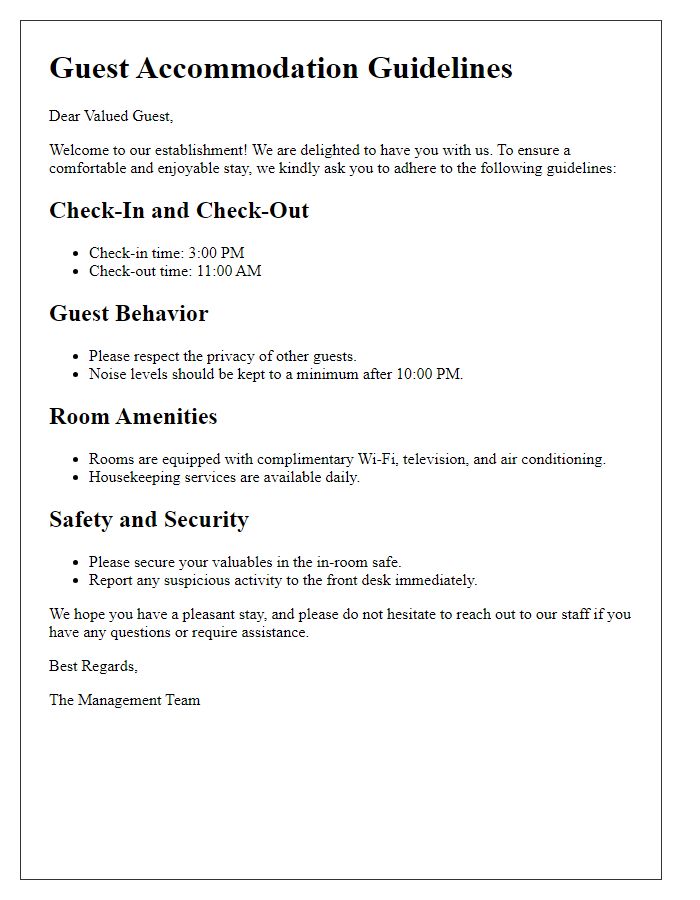
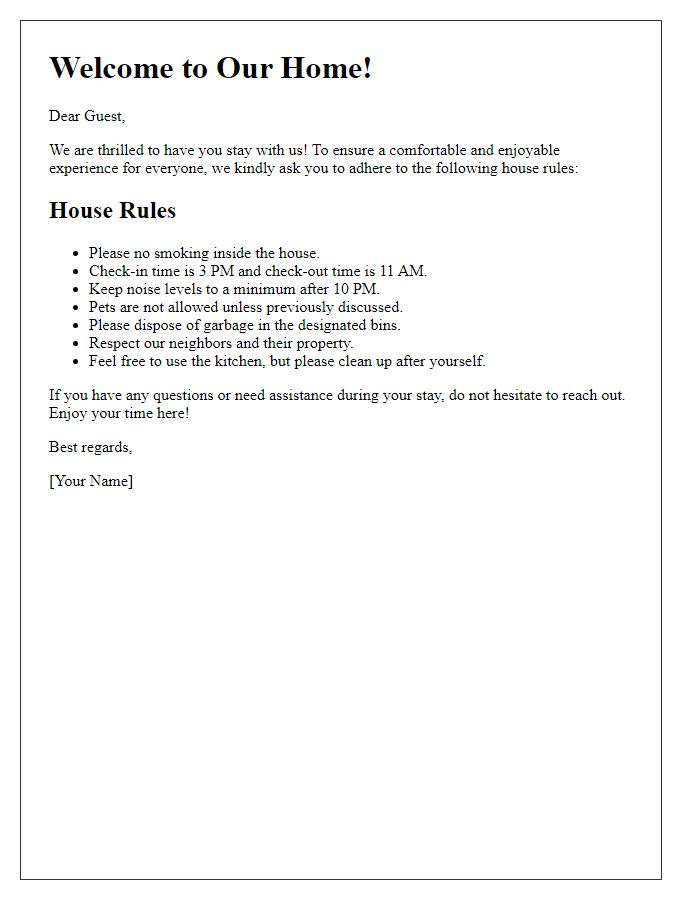
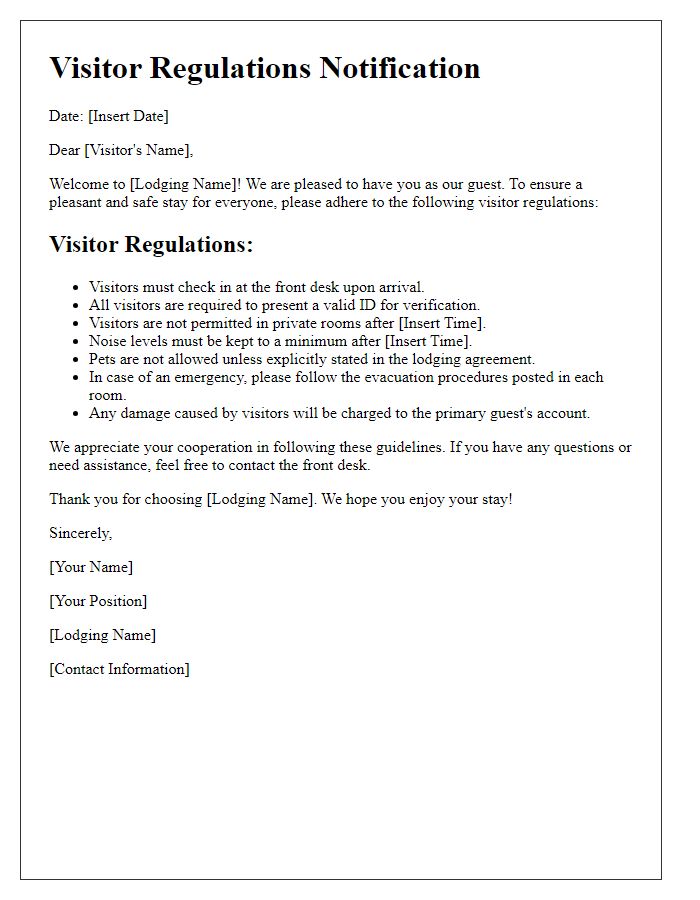
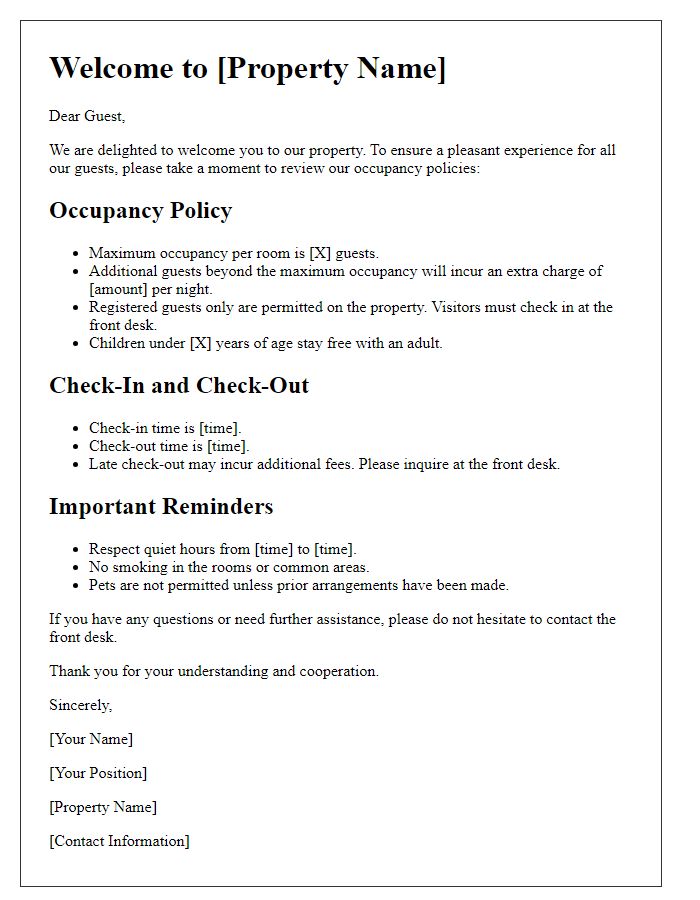
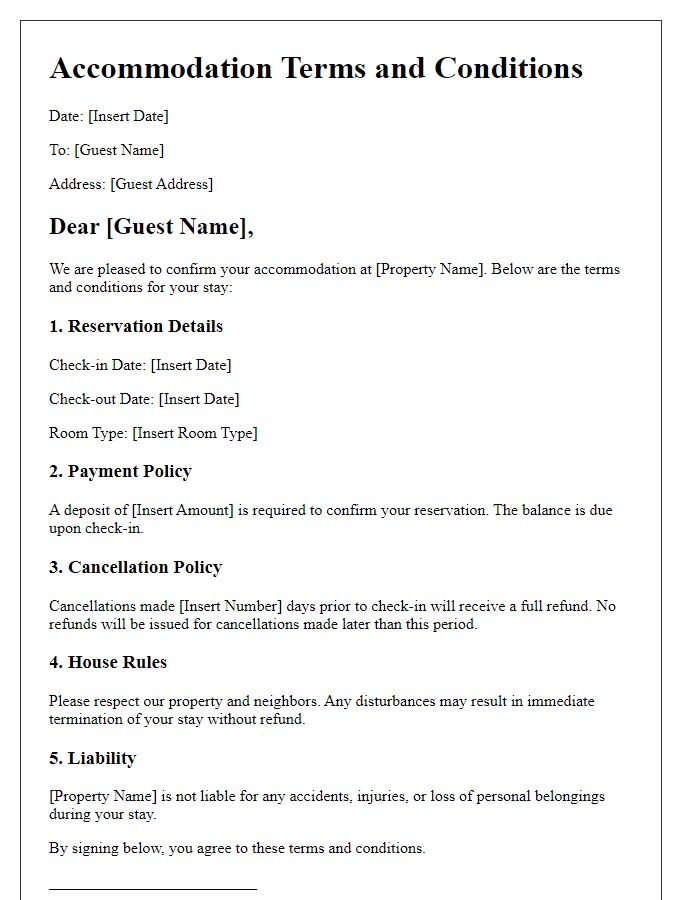
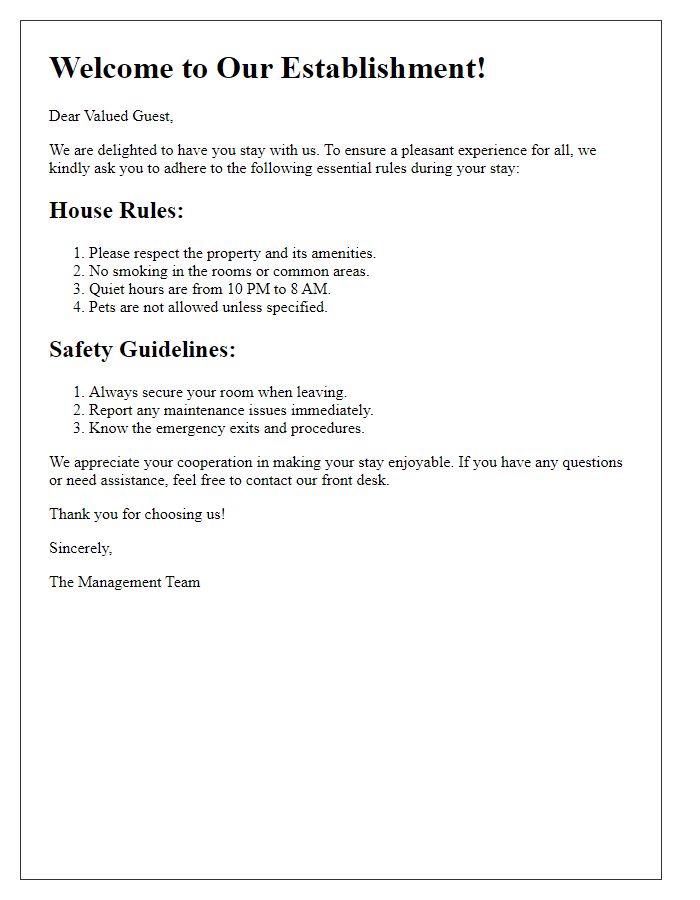
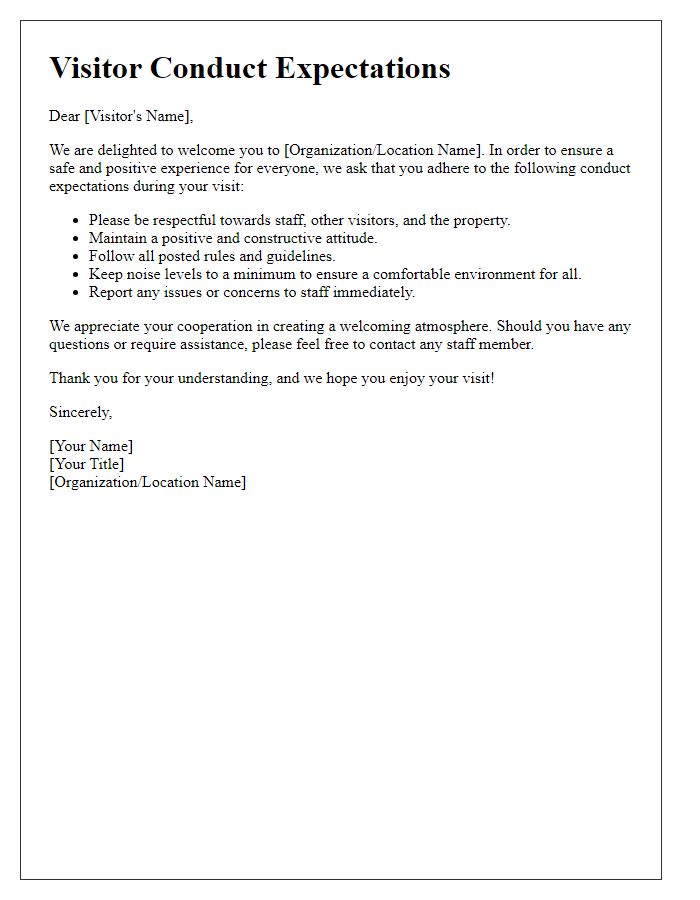
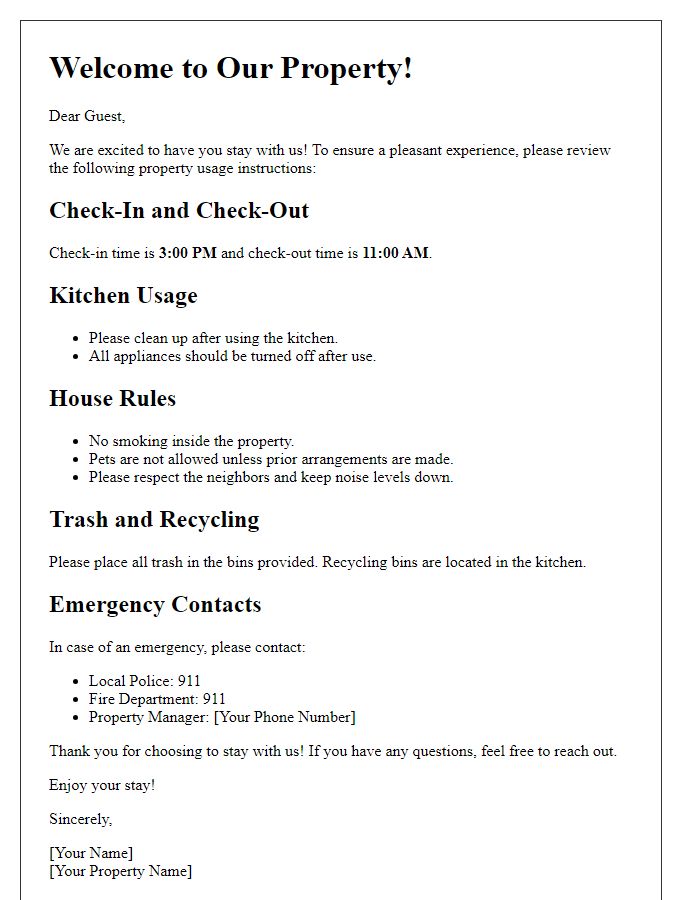
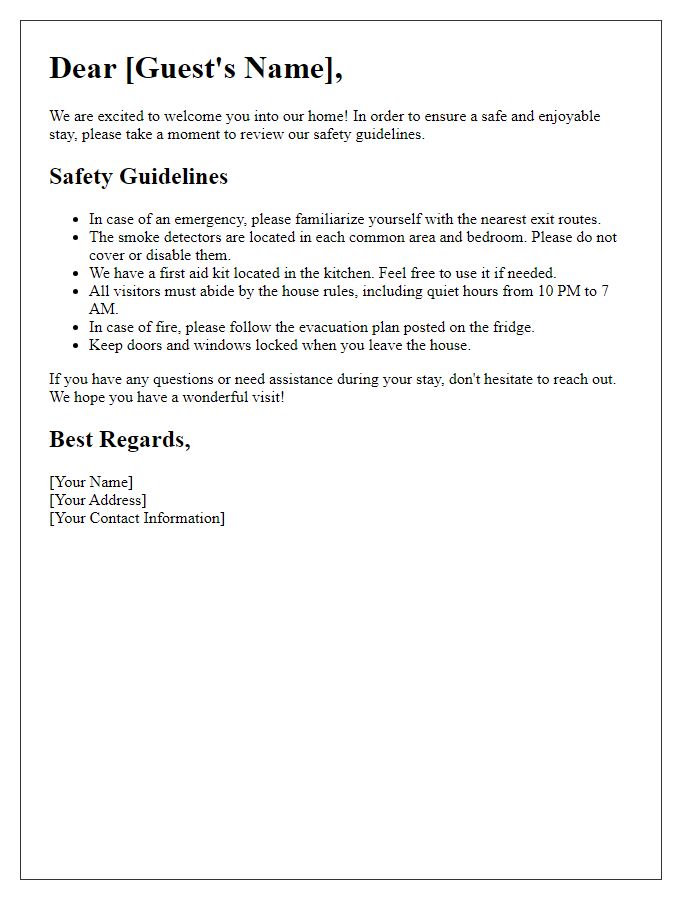
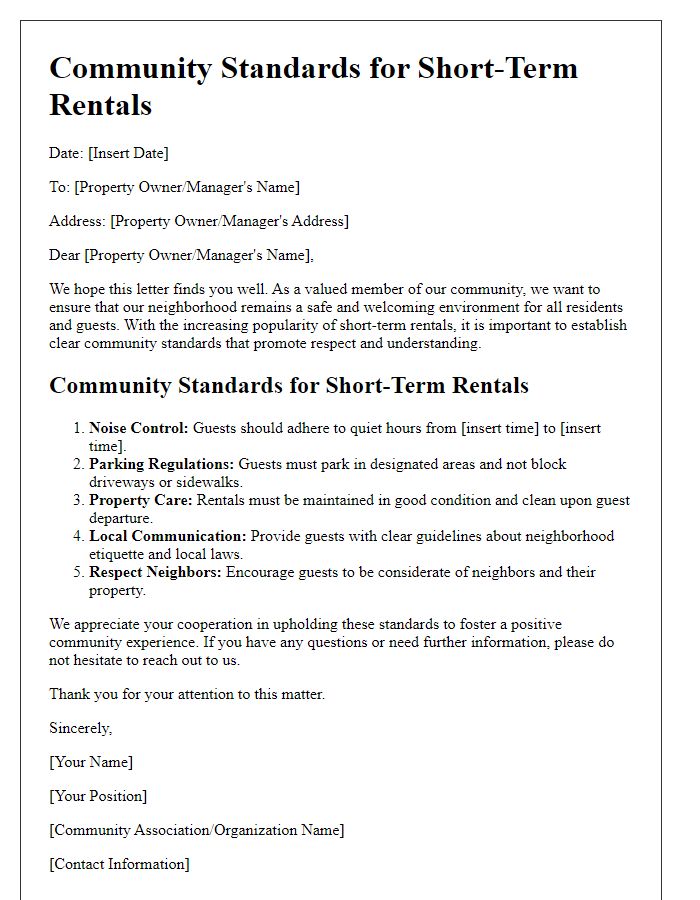

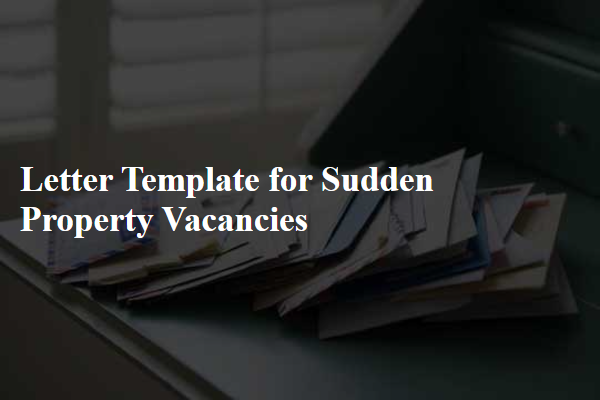
Comments